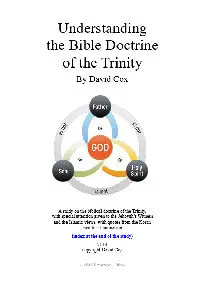Thomas Aquinas Summa Theologica
CONTENTS of Thomas Aquinas Summa Theologica
PROLOGUE
FIRST PART (QQ. 1-119)
Question
1. The Nature and Extent of Sacred Doctrine 2. The Existence of God 3. On the Simplicity of God 4. The Perfection of God 5. Of Goodness in General 6. The Goodness of God 7. The Infinity of God 8. The Existence of God in Things 9. The Immutability of God 10. The Eternity of God 11. The Unity of God 12. How God Is Known by Us 13. The Names of God 14. Of God’s Knowledge 15. Of Ideas 16. Of Truth 17. Concerning Falsity 18. The Life of God 19. The Will of God 20. God’s Love 21. The Justice and Mercy of God 22. The Providence of God 23. Of Predestination 24. The Book of Life 25. The Power of God 26. Of the Divine Beatitude 27. The Procession of the Divine Persons 28. The Divine Relations 29. The Divine Persons 30. The Plurality of Persons in God 31. Of What Belongs to the Unity or Plurality in God 32. The Knowledge of the Divine Persons 33. Of the Person of the Father 34. Of the Person of the Son 35. Of the Image 36. Of the Person of the Holy Ghost 37. Of the Name of the Holy Ghost—Love 38. Of the Name of the Holy Ghost, as Gift 39. Of the Persons in Relation to the Essence 40. Of the Persons as Compared to the Relations or Properties 41. Of the Persons in Reference to the Notional Acts 42. Of Equality and Likeness Among the Divine Persons 43. The Mission of the Divine Persons
TREATISE ON THE CREATION
44. The Procession of Creatures from God, and of the First Cause of All Things 45. The Mode of Emanation of Things from the First Principle 46. Of the Beginning of the Duration of Creatures 47. Of the Distinction of Things in General 48. The Distinction of Things in Particular 49. The Cause of Evil
TREATISE ON THE ANGELS
50. Of the Substance of the Angels Absolutely Considered 51. Of the Angels in Comparison with Bodies 52. Of the Angels in Relation to Place 53. Of the Local Movement of the Angels 54. Of the Knowledge of the Angels 55. Of the Medium of the Angelic Knowledge 56. Of the Angels’ Knowledge of Immaterial Things 57. Of the Angels’ Knowledge of Material Things 58. Of the Mode of the Angelic Knowledge 59. The Will of the Angels 60. Of the Love or Dilection of the Angels 61. Of the Production of the Angels in the Order of Natural Being 62. Of the Perfection of the Angels in the Order of Grace and of Glory 63. The Malice of the Angels with Regard to Sin 64. The Punishment of the Demons
TREATISE ON THE WORK OF THE SIX DAYS
65. The Work of Creation of Corporeal Creatures 66. On the Order of Creation Towards Distinction 67. On the Work of Distinction in Itself 68. On the Work of the Second Day 69. On the Work of the Third Day 70. On the Work of Adornment, as Regards the Fourth Day 71. On the Work of the Fifth Day 72. On the Work of the Sixth Day 73. On the Things That Belong to the Seventh Day 74. On All the Seven Days in Common
TREATISE ON MAN
75. Of Man Who Is Composed of a Spiritual and a Corporeal Substance: and in the First Place, Concerning What Belongs to the Essence of the Soul 76. Of the Union of Body and Soul 77. Of Those Things Which Belong to the Powers of the Soul in General 78. Of the Specific Powers of the Soul 79. Of the Intellectual Powers 80. Of the Appetitive Powers in General 81. Of the Power of Sensuality 82. Of the Will 83. Of Free-Will 84. How the Soul While United to the Body Understands Corporeal Things Beneath It 85. Of the Mode and Order of Understanding 86. What Our Intellect Knows in Material Things 87. How the Intellectual Soul Knows Itself and All Within Itself 88. How the Human Soul Knows What Is Above Itself 89. Of the Knowledge of the Separated Soul 90. Of the First Production of Man’s Soul 91. The Production of the First Man’s Body 92. The Production of the Woman 93. The End or Term of the Production of Man 94. Of the State and Condition of the First Man as Regards His Intellect 95. Of Things Pertaining to the First Man’s Will—Namely, Grace and Righteousness 96. Of the Mastership Belonging to Man in the State of Innocence 97. Of the Preservation of the Individual in the Primitive State 98. Of the Preservation of the Species 99. Of the Condition of the Offspring As to the Body 100. Of the Condition of the Offspring As Regards Righteousness 101. Of the Condition of the Offspring As Regards Knowledge 102. Of Man’s Abode, Which Is Paradise
TREATISE ON THE DIVINE GOVERNMENT
103. Of the Government of Things in General 104. The Special Effects of the Divine Government 105. Of the Change of Creatures by God 106. How One Creature Moves Another 107. The Speech of the Angels 108. Of the Angelic Degrees of Hierarchies and Orders 109. The Ordering of the Bad Angels 110. How Angels Act on Bodies 111. The Action of the Angels on Man 112. The Mission of the Angels 113. Of the Guardianship of the Good Angels 114. Of the Assaults of the Demons 115. Of the Action of the Corporeal Creature 116. On Fate 117. Of Things Pertaining to the Action of Man 118. Of the Production of Man from Man As to the Soul 119. Of the Propagation of Man As to the Body _______________________
PROLOGUE
Because the Master of Catholic Truth ought not only to teach the proficient, but also to instruct beginners (according to the Apostle: As Unto Little Ones in Christ, I Gave You Milk to Drink, Not Meat— 1 Cor. iii. 1, 2)—we purpose in this book to treat of whatever belongs to the Christian Religion, in such a way as may tend to the instruction of beginners. We have considered that students in this Science have not seldom been hampered by what they have found written by other authors, partly on account of the multiplication of useless questions, articles, and arguments; partly also because those things that are needful for them to know are not taught according to the order of the subject-matter, but according as the plan of the book might require, or the occasion of the argument offer; partly, too, because frequent repetition brought weariness and confusion to the minds of the readers.
Endeavoring to avoid these and other like faults, we shall try, by God’s help, to set forth whatever is included in this Sacred Science as briefly and clearly as the matter itself may allow.
Thomas Aquinas Summa Theologica






